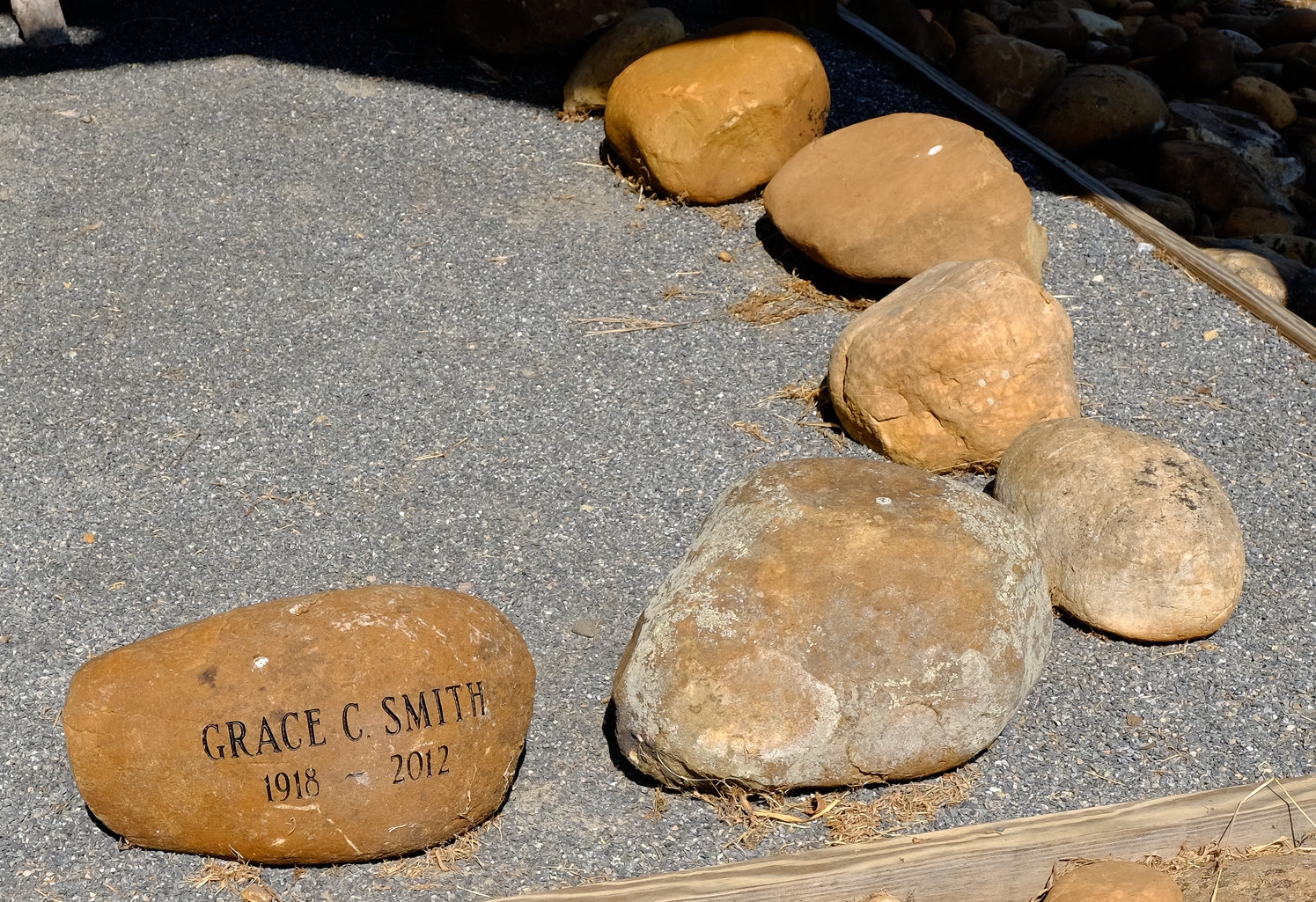Chapel at Cool Spring Natural Cemetery photos by Tom Bailey
Cool Spring--what a lovely name for the last cemetery on the homeward leg of a tour of southern natural and green burial cemeteries....
Cool Spring Natural Cemetery is a 54-acre Roman Catholic Cemetery, open to all and operated by the Cistercian monks of the Holy Cross Abbey in Berryville, Virginia, 65 miles west of Washington, DC. By the time we reached it, I had visited many hybrid cemeteries but only a handful of standalone natural burial grounds. Their rarer nature is a good argument for encouraging hybrids as a way to expose more people to the concept.
The road to Cool Spring winds along the Shenandoah River before heading uphill past shaded homes and emerging into the sun along corn fields. For much of the day we had driven through farmland, thinking as we went how crazy it would be for America not to support this Eastern model of farming with smaller farms, so unlike industrial farming in the big Western landscape. We pulled into a parking lot overlooking a patchwork of yellow and green land, a vegetation belt which hid the river at the base of long slopes, and a soaring outdoor chapel that invited visitors to meditate or rest after visiting the cemetery.
I had contacted the cemetery to announce our visit and after parking we entered woods where the burial section called "Woodland Rest" is crowded with graves protected by the trees, marked with stones and curious naked metal stakes.
Woodland rest was pleasant but we had seen similar forested grounds elsewhere. So we followed a dirt lane past a sign to "Blue Ridge Meadow" and emerged into sunshine at the top of a rounded hill covered in long grass with at its base a disused barn and silo. Everything was soaked in a golden light.
"Wow! Glad we saved this for last," said Tom.
A trail followed the ridge at the tree line then carved downhill in spokes, like a bicycle wheel or sun rays. Flowers had spread throughout and a water meadow peeked through hedgerows before the river. I walked as many of the spokes as I could. Insects flew from the grass to greet me. There were graves EVERYWHERE. How do they do it? I wondered. A number of graves held two people, their last earthly shared home with a fabulous view, double mounded and grass covered, marked by rounded engraved gravestones and, irritatingly, those metal stakes. It was a treasure hunt in the tall grass and I didn't want to miss a grave though it was hot trudging uphill and down. Beyond the unseen Shenandoah lay the Blue Ridge Mountains for which the meadow is named. Above the ridge trail a simple wooden hermitage house with a porch tucked back into the woods is used by the monks for solitude and prayer.
Cool Spring is aptly named a "natural cemetery." While often used as a general description of burial without embalming or vaults, in a shroud or biodegradable casket, natural also defines the second level of green burial after hybrid.
According to the Green Burial Council which sets standards most green cemeteries adhere to whether they seek certification or not, a natural burial cemetery must be "designed, operated and maintained to produce a naturalistic appearance, based on use of plants and materials native to the region, and patterns of landscape derived from and compatible with regional ecosystems." As opposed to hybrids which are created within existing conventional cemeteries, they start out as natural burial cemeteries and end up creating whole land concepts either by restoring or rebuilding distressed places or maintaining existing landscapes.
Cool Spring graves are fairly pricey as such cemeteries go but it obviously hasn't deterred customers, which belies the emphasis often given on cost as a reason to go green/natural. The integrity of the meadow setting is aided by the use of flat engraved river stones as markers, like these set out by the cemetery as examples, but this effect is marred by the 3-foot metal whips stuck upright in the ground at many of the graves. We found this at Green Hills in Asheville as well. Such intrusive markers are antithetical to the idea of letting graves be part of a natural landscape.
Maybe it won't matter to me once I'm dead where my body lies, but I do like to contemplate beforehand and the idea of being someplace beautiful sure beats alternatives. As my husband said, Cool Spring isn't super-rustic, it has dignity and a beautiful setting for all its being in the country. I wouldn't choose to go as far from home as Virginia but if someone really wanted to bury me there I wouldn't object.








